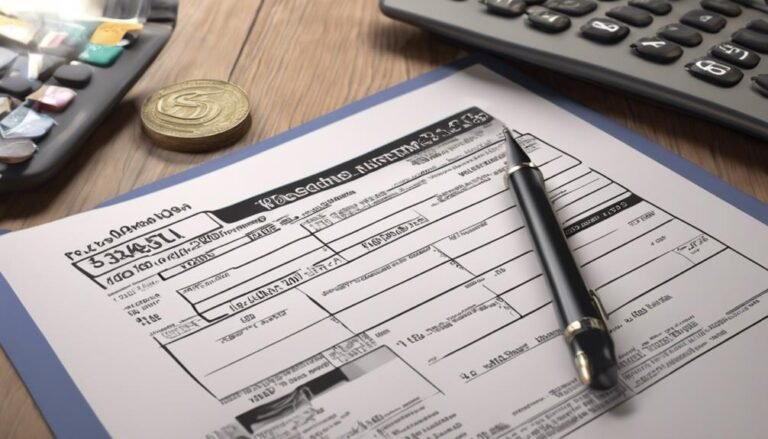Checks and Balances: Definition, Examples, and How They Work
Checks and balances are fundamental mechanisms aimed at preventing power consolidation, fostering accountability, and ensuring transparency in governance by dispersing authority across different branches or entities. These principles were first developed in ancient Rome to hinder the centralization of power. Examples can be seen in government oversight and corporate governance, promoting fair decision-making and upholding the rule of law. By maintaining the separation of powers, checks and balances define roles, enhance productivity, prevent errors, and misconduct, all while promoting integrity and adherence to regulations. Understanding their significance is essential for a well-informed perspective on organizational structures and democratic principles.
Key Takeaways
- Checks and balances prevent consolidation of power in a single entity.
- They ensure accountability, transparency, and fair decision-making processes.
- In governance, they distribute power among different branches to maintain balance.
- Internal controls like audits enforce checks and balances to prevent misconduct.
- They uphold the rule of law, prevent abuses of power, and promote integrity in structures.
Origin and Purpose of Checks and Balances
Originating from ancient Rome, the concept of checks and balances serves the fundamental purpose of preventing the consolidation of power within a single entity or branch, ensuring accountability and transparency in governance structures.
In ancient Rome, this concept emerged as a mechanism to distribute power among different branches of government, preventing any one entity from becoming too dominant. By implementing checks and balances, accountability is enforced as each branch oversees the actions of the others, ensuring that decisions are made transparently and in the best interest of the populace.
This system aims to maintain a harmonious balance of power, preventing any abuse of authority and promoting a fair and just governance framework that upholds the principles of accountability and transparency.
Implementation in Government and Business
The implementation of checks and balances in government and business is essential for ensuring accountability and preventing the concentration of power in any single entity or department. Government oversight plays a pivotal role in monitoring the actions of different branches to prevent abuse of power and maintain transparency.
In the business world, corporate governance mechanisms are necessary for ensuring that decision-making processes are fair, ethical, and in the best interest of stakeholders. Companies often establish internal controls, such as independent audits and oversight committees, to uphold checks and balances.
Examples of Checks and Balances
Implementation of checks and balances in various branches of government and organizations serves as an important mechanism to prevent the consolidation of power and promote accountability and transparency.
In corporate governance, checks and balances are essential to ensuring that no single individual or group can dominate decision-making processes. This is often achieved through the establishment of robust internal control mechanisms and oversight structures.
Within the legal framework, checks and balances play a significant role in upholding the rule of law and preventing any branch of government from overstepping its authority. By distributing power among different entities and requiring cooperation and consensus, checks and balances help maintain stability and prevent abuses of power.
Functionality and Importance
Checks and balances play an essential role in maintaining the separation of powers and ensuring accountability within governmental and organizational structures. When considering their functionality and importance, it becomes evident that these mechanisms are pivotal for operational efficiency and implementing accountability measures.
Operational Efficiency: Checks and balances help define and streamline roles within a system, reducing confusion and enhancing productivity.
Accountability Measures: By requiring different branches or departments to oversee and check each other's actions, checks and balances guarantee that power is not abused and that decisions are made transparently.
Preventing Errors and Misconduct: Through checks and balances, organizations can detect and rectify mistakes or improper behavior, promoting a culture of integrity and adherence to regulations.
Global Significance and Application
An essential aspect of global governance involves the widespread adoption and adaptation of systems that promote accountability and prevent the consolidation of power in any single entity. Checks and balances play a vital role in preventing authoritarianism by distributing power across different branches or institutions, ensuring no one entity becomes too dominant.
By promoting compromise and negotiation, these systems help in resolving conflicts and reaching decisions that consider diverse perspectives. Countries worldwide have recognized the importance of checks and balances in maintaining democratic principles, upholding the rule of law, and preventing abuses of power.
The global application of these principles reflects a commitment to transparency, accountability, and the protection of individual rights, contributing to a more stable and just international order.
Conclusion
To sum up, checks and balances stand as the cornerstone of democratic governance, ensuring accountability, transparency, and the protection of individual rights.
Like a well-oiled machine, these mechanisms function harmoniously to prevent the concentration of power and uphold the rule of law.
Their global significance cannot be understated, as they serve as a bulwark against authoritarianism and corruption, fostering compromise and negotiation in the pursuit of a more just and equitable society.







